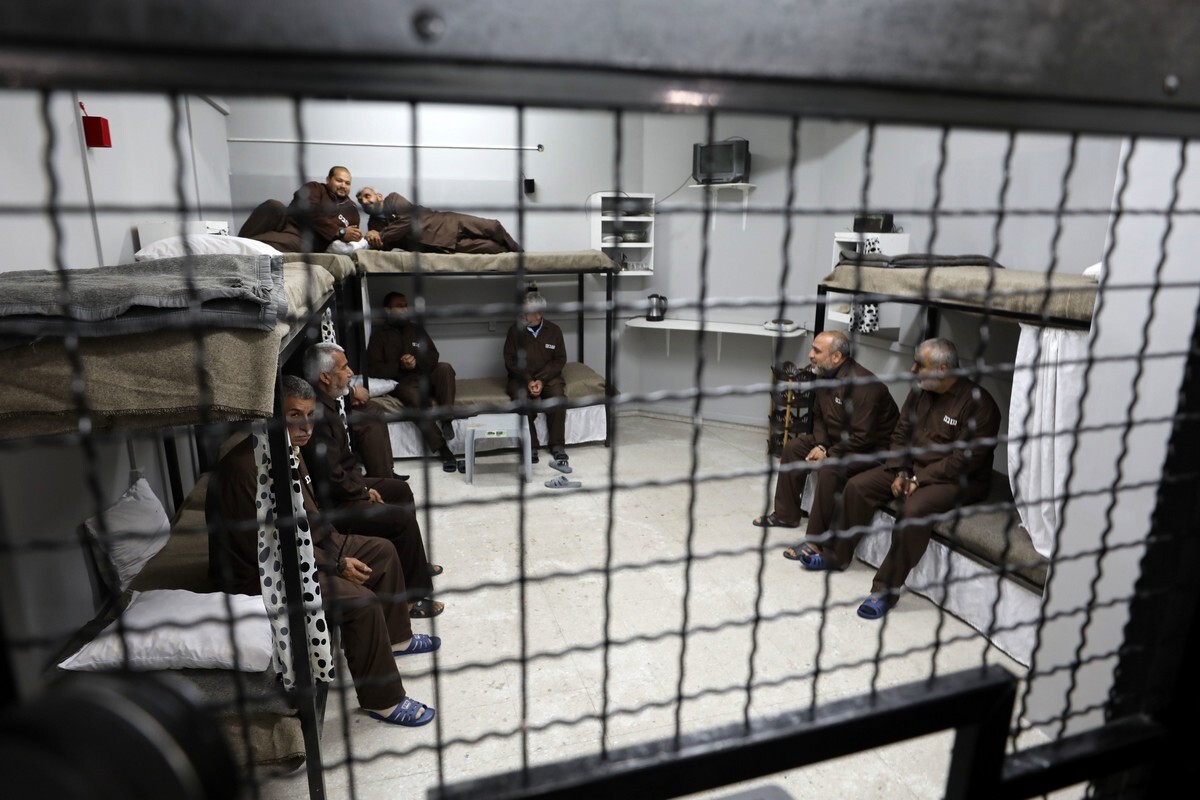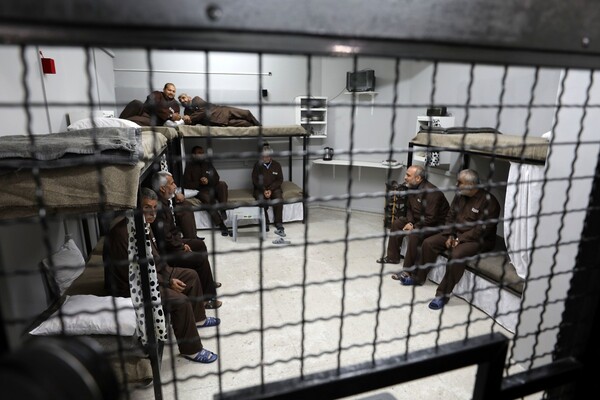PALESTINE
Sat 18 Nov 2023 9:29 pm - Jerusalem Time
Palestinian prisoners face harsh Israeli arbitrary measures since oct. 7th
The conditions of prisoners in Israeli occupation prisons are becoming more difficult and harsh with the passage of time. This is not what some people believe, that with the passage of time this attack will subside. But it is clear that the occupation forces took advantage of the current circumstances in order to intensify the attack, and even to become a permanent approach, under the pretext that these practices are linked to the conditions of Israeli prisoners held by the Palestinian resistance. But in fact, the attack began when Ben Gvir took over the Ministry of National Security in Israel about a year ago.
Intensive and widespread retaliatory measures that fall within the crime (collective punishment) imposed by the occupation against prisoners.
After October 7, the occupation prison administration began imposing collective retaliatory measures within the framework of the established and systematic crime of “collective punishment” against prisoners, which was the most severe and dangerous in decades. The competent institutions were able, through limited visits they carried out to some prisons, which took place under extremely difficult circumstances, and through the testimonies they obtained from those who were recently released; to monitor these procedures, which constitute an extension of a set of policies and procedures that Israel has adopted against prisoners over many decades.
The repressive forces, armed with all types of weapons, carried out massive raids into the prisoner’s rooms and cells, and placed the prisoners in collective and double isolation, as all (the prisoners’ rooms) were turned into cells after stripping them of all their possessions, and confiscating all the simple electricals that they were using, to meet their basic needs. It carried out widespread attacks against prisoners, through severe beatings using sticks and batons, causing dozens of injuries to them and then deliberately leaving them without treatment. Since the canteen was banned, prisoners have been deprived of access to cigarettes, coffee, and tea.
These measures affected the basic necessities of life (food, water, treatment, and electricity), after they cut off electricity to the prisoners’ sections, reduced the amount of water and the hours it is available to them, imposed unprecedented restrictions on sick prisoners, and doubled the policies of denial of treatment that already existed against them, and stopped the transfer of prisoners to prison clinics, as well as to hospitals. Starvation was also imposed after the cantina was closed, and the remaining food supplies (such as canned food) were confiscated by the prisons. Meals were reduced to two meals, which no longer amounted to being described as meals, as they were inedible morsels.
It closed all facilities, including the laundry that the prisoners used to wash their clothes, after confiscating their clothes and leaving the prisoner with only one spare change. In some prisons, they confiscated shoes and pillows, carried out mass transfers against prisoners, and isolated many of them in solitary confinement after severely beating them. As a result of the daily arrest campaigns, the prisons were crowded with new detainees. The room that could accommodate six prisoners, the number of prisoners in it exceeded ten, and in addition to all of this, interrogations and investigations were carried out for many prisoners about the current situation.
These measures also included the “Ramla Prison Clinic,” where sick prisoners are held. Prisoners in the “Ramla Prison Clinic” complained of the difficulty of inspection and the quantities of food that do not match the amount of medications they take. In addition, the measures included the “Damoun” prison, where the female prisoners are located, who since October 7th have been subjected to several repression operations accompanied by gas spraying, and three female prisoners were placed in isolation, where the representative of the female prisoners, Marah Bakir, remains in solitary confinement in Al-Jalama prison to this day.
The occupation's measures also reached the point of targeting prisoners through a systematic and premeditated assassination of detainees. Since the outbreak of the war, six prisoners have been martyred as a result of being subjected to severe beatings.
In this context, the institutions concerned with prisoners confirm that the reality of prison life for prisoners today is more difficult and dangerous, and is closer to the reality of prisoners in the late sixties and beginning of the seventies.






Share your opinion
Palestinian prisoners face harsh Israeli arbitrary measures since oct. 7th